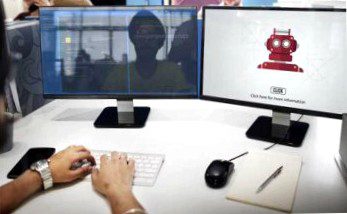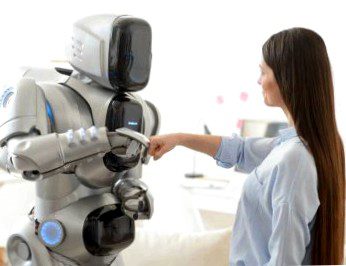
Zurich Group in Germany is already considered modern – now Zurich is going one step further: it wants to fundamentally change processes and is introducing software robots to speed up customer service and relieve employees of boring standard tasks.
Digitization is not an end in itself. The goal of digitization is to establish an even better customer focus in companies. This is what Zurich has apparently realized.

“To better meet massively changing customer demands, insurance companies need to develop contemporary customer-centric solutions even faster and fundamentally reengineer processes,” the company says. Zurich Group Germany now wants to achieve this through the use of software robots.
The technology: The software simulates input into “normal” software via mouse and keyboard
Enterprise software replaces manual input in Zurich systems with robotic machine input – where the process is based on clear and standardized rules. Seven robots are currently in use at Zurich. The number is expected to increase further in the coming year.
In the process, the new software systems mimic human process steps on existing applications, without costly integration into the existing system architecture. Automation is based on defined rules and instructions in the form of, for example, work specifications or training documents.
Zurich has entrusted the analysis of processes that can be transferred to robots, as well as the programming of the robots, to its employees.”

The “digital colleague” relieves the burden of annoying, repetitive tasks
Meanwhile, cancellation processing in the life insurance sector is partially automated. Here Zurich employees and the software work hand in hand. Because the professional assessment of whether a termination is possible at the desired time is still made by a human being. Employees continue to handle more complex cases themselves. The “colleague robot” is thus less competition, but relief in the processing of simpler work steps.
Design thinking as a catalyst for greater customer orientation
In order to implement new customer-oriented products and services as quickly as possible, Zurich also has six champion teams working together across divisions, disciplines and hierarchies using the design thinking method.
Focus areas are “Generation Y”, “Motor”, “Non-Motor”, “Protection” (biometrics products and services), “Savings” (savings and pension insurance products and services) and “small and medium-sized enterprises” (SMEs). To this end, Zurich has also created a special working environment that takes into account the spatial requirements of this creative work methodology and fosters it. In the Champion Teams, different skills and broad knowledge are exchanged along the entire value chain. The agile working method practiced in the teams is intended to make employees more flexible, efficient and transparent in the design and implementation of their activities. aj